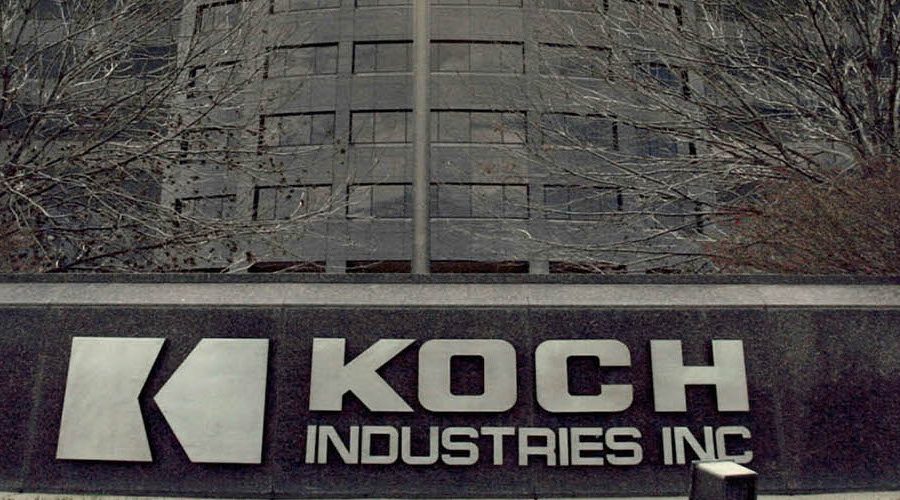This week Koch Industries, the parent of the conglomerate owned by Charles Koch, reported it spent almost $11 million on lobbying the U.S. Congress in 2019, up ten percent from its spending in 2018.
Koch lobbied against Democratic initiatives on a “Green New Deal,” and against other renewable energy legislation and donor transparency, while continuing to lobby for eliminating the tax credit for electric cars, a trade agreement with Mexico and Canada, and limits on the President’s ability to levy tariffs, duties and other trade measures.
While lobbying reports to the Congress do not show how much time or money is spent on different issues, it is clear from the number of mentions on Koch’s lobbying report that taking the U.S. out of the Paris climate accord continued to be a priority.
The Climate Action Now Act, H.R. 9, which passed the U.S. House by Democrats, would prevent federal funds from being used to leave the climate treaty. Koch opposes the bill. In November of last year, Trump initiated the process to remove the U.S. from the accord.
Koch also fought against H.R. 330, the Climate Solutions Act of 2019, which has not yet passed the House, that would require the U.S. to “increase the percentage of electricity sold in the United States that is generated from renewable sources” to 100 percent by 2035.
With the Fairness for Drivers Act of 2019, introduced in the U.S. Senate as S. 343 Koch continues to oppose electric plug-in vehicles or vehicles using renewable resources, such as fuel cells. The bill, which will see no action in the House as long as it is controlled by Democrats, would eliminate the tax credit for electric plug-in vehicles, as well as impose a tax on vehicles using renewable energy.
On the flip side, Koch opposed H.R. 2256, the Driving America Forward Act, which would expand tax credits for plug-in electric vehicles and fuel cell vehicles. The bill has 138 co-sponsors, not surprisingly all Democrats, and none receiving any money from Koch Industries’ political action committee, KochPAC.
On the other hand, all four of the House Democrats that have received contributions from KochPAC for the last three election cycles have not co-sponsored the bill: Collin Peterson (MN), Henry Cuellar (TX), Jim Costa (CA), and Kurt Schrader (OR).
As already reported by the Center for Media and Democracy (CMD), Koch also spent money trying to pass H.R. 531, which would repeal the Corporate Average Fuel Economy, or CAFE, fuel efficiency standards for cars and light trucks first set by Congress in 1975. The bill was introduced in the House, where it is blocked by Democrats, by Rep. Roger Williams (R-Texas). Williams has received $16,000 since 2014 from KochPAC and close to $1 million from the oil and gas industry during his career in Congress, according to the Center for Responsive Politics.
Koch continues to oppose a carbon pricing tax as well, last year in the form of opposition to H.R. 763, the Energy Innovation and Carbon Dividend Act of 2019. Koch’s lobbying against the bill was reinforced by a group sign-on campaign led by Grover Norquist’s Americans for Tax Reform, which has received money from front groups created by Koch and foundations controlled by Charles Koch.
Saying that a carbon tax “increases the power, cost, and intrusiveness of the government in our lives,” the letter was signed by 75 groups, many of which receive funding from Koch or the Koch-preferred funding vehicle, DonorsTrust, such as the Capital Research Center, 60 Plus Association, American Legislative Exchange Council, and state affiliates of the right-wing State Policy Network (SPN).
In 2019, as in decades past, Koch supported anything that maintains a reliance by the U.S. on oil and gas, and fought against any renewable energy or energy efficiency measure that would threaten its profits as the country’s tenth largest oil refiner, as well as one of the largest owners of oil and gas reserves and pipelines.



Leave a Reply